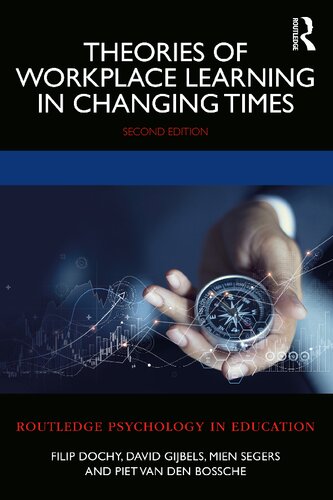

Most ebook files are in PDF format, so you can easily read them using various software such as Foxit Reader or directly on the Google Chrome browser.
Some ebook files are released by publishers in other formats such as .awz, .mobi, .epub, .fb2, etc. You may need to install specific software to read these formats on mobile/PC, such as Calibre.
Please read the tutorial at this link: https://ebookbell.com/faq
We offer FREE conversion to the popular formats you request; however, this may take some time. Therefore, right after payment, please email us, and we will try to provide the service as quickly as possible.
For some exceptional file formats or broken links (if any), please refrain from opening any disputes. Instead, email us first, and we will try to assist within a maximum of 6 hours.
EbookBell Team

0.0
0 reviewsThis book is an expansion and major updating of the highly successful Theories of Learning for the Workplace, first published in 2011. It offers fascinating overviews into some of the most important theories of learning and how they are practically applied to organisational or workplace learning. Each chapter is co-authored by an academic researcher and an expert in business or industry, providing practical case studies combined with a thorough analysis of theories and models of learning.
Key figures in education, psychology, and cognitive science present a comprehensive range of conceptual perspectives on learning theory, offering a wealth of new insights to support innovative research directions and innovation in learning, training, and teaching for the upcoming post-Covid-19 decades. Containing overviews of theories from Argyris, Decuyper, Dochy & Segers, Engeström, Ericsson, Kolb, Lave & Wenger, Mezirow, Raes & Boon, Schön, Senge, and Van den Bossche, this book discusses:
Combining theory and practice, this book will be essential reading for all trainee and practising educational psychologists, organisational psychologists, researchers, and students in the field of lifelong learning, educational policy makers, students, researchers, and teachers in vocational and higher education. It will also be of interest to those involved in training trainers and teacher training.